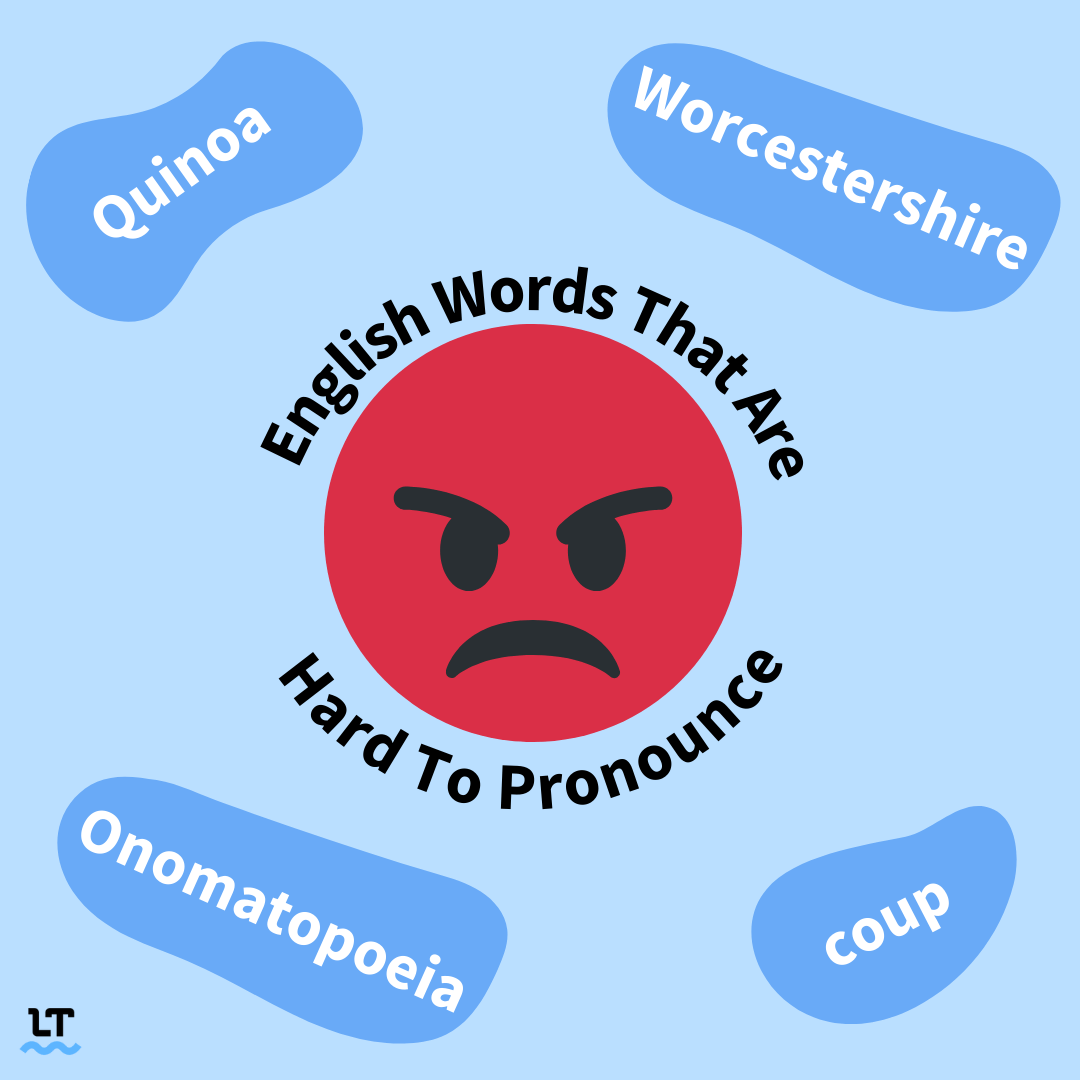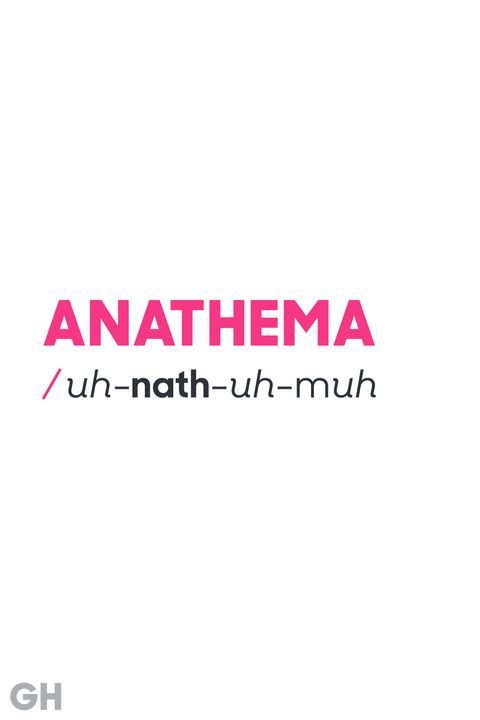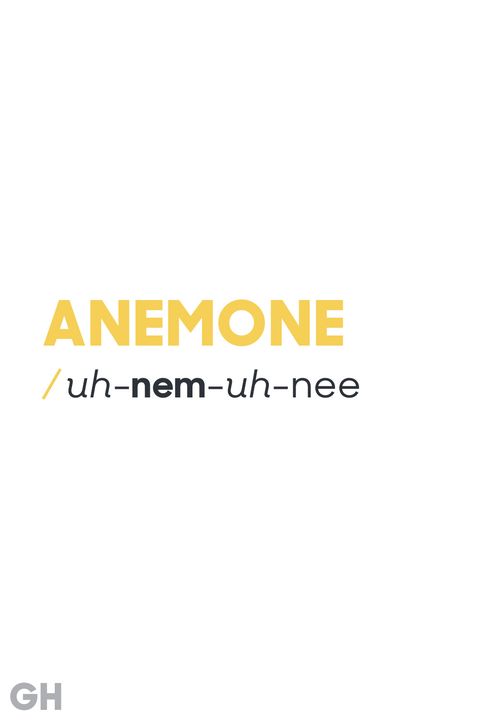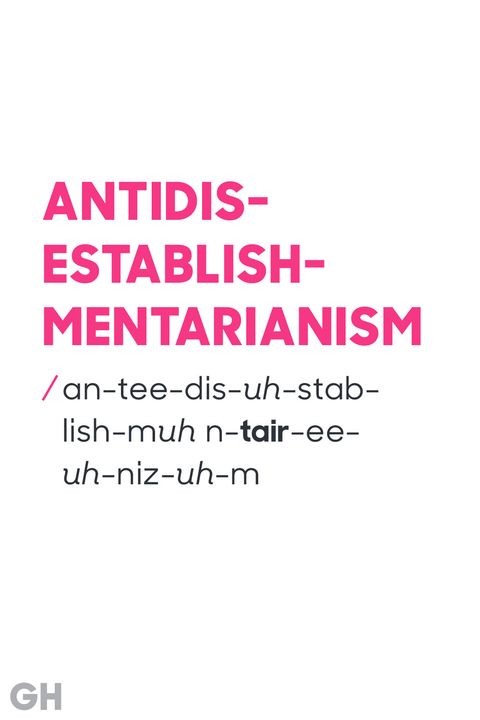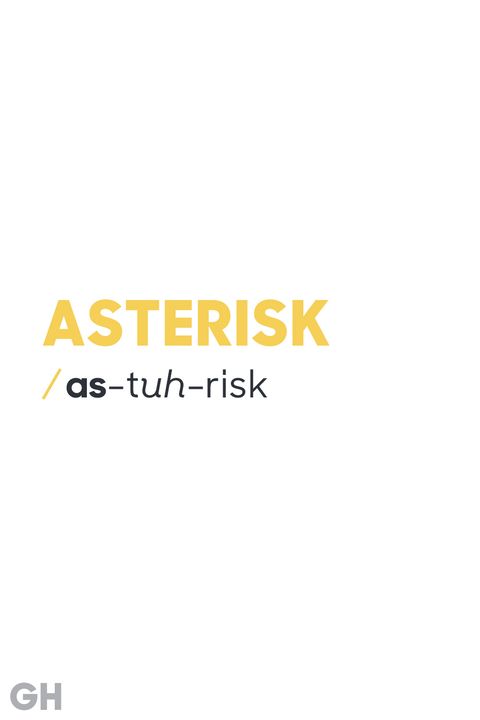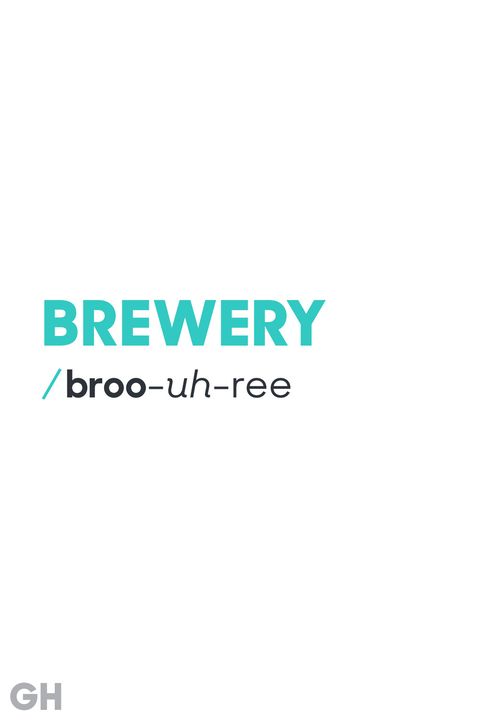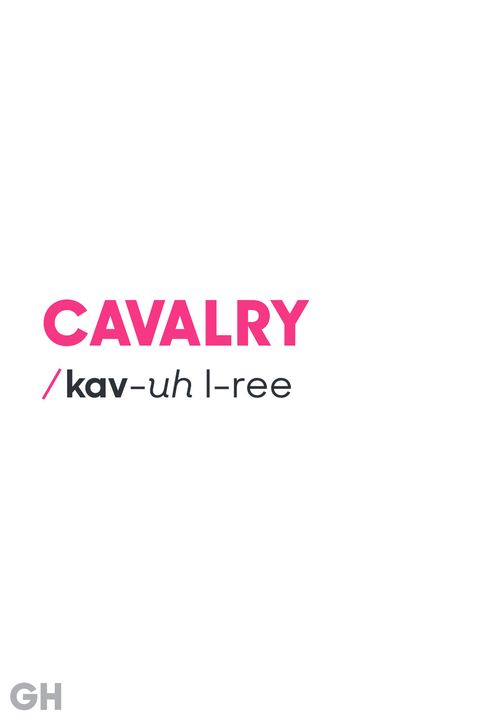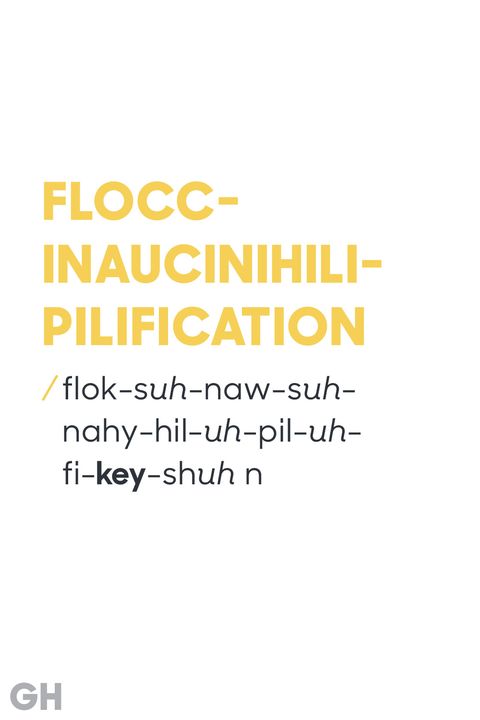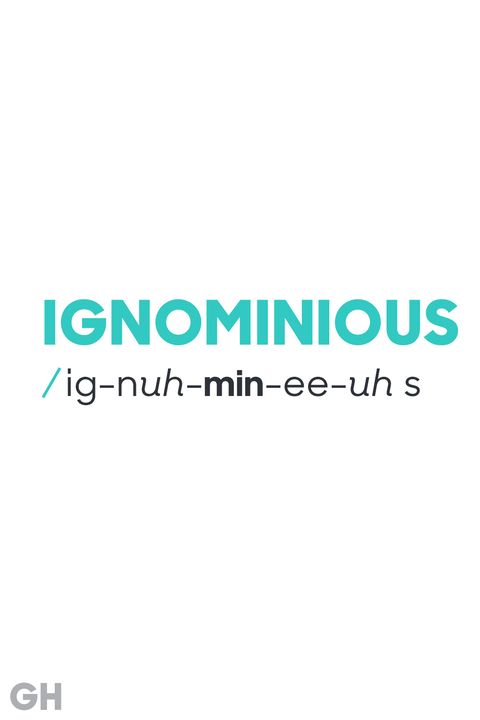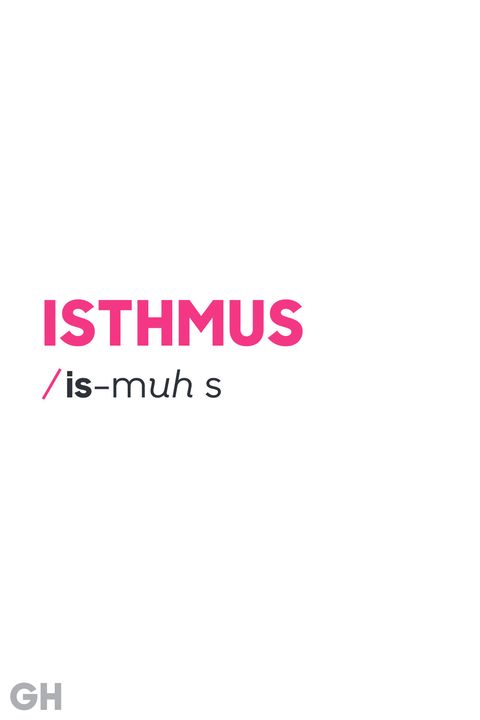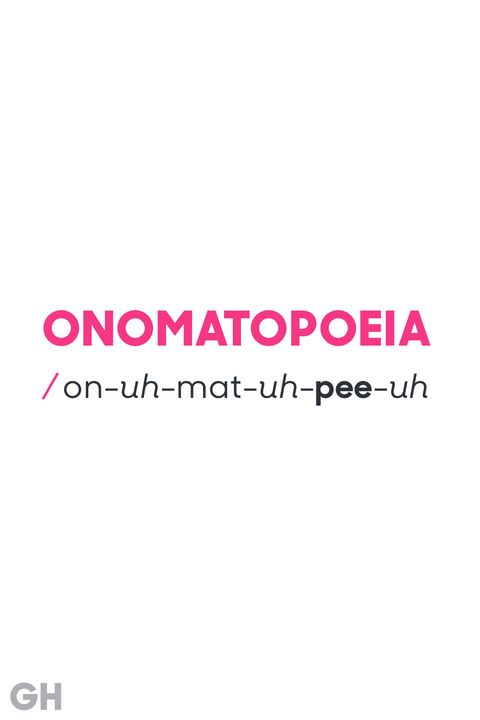One of the biggest challenges facing people who are trying to learn English as a second language is the thought that, there are so many hard English words to pronounce!
What makes a word hard to pronounce? Often times the
difficult words to pronounce for non-native English speakers are those that are spelled completely different from how they are pronounced.
Not all English words are pronounced phonetically. When a word is pronounced phonetically, it is pronounced how it is spelled. Take the word “know”, if it was pronounced phonetically, the “k” would be spoken. However, the “k” is not spoken and this makes “know” one of the English
language’s tricky pronunciation words.
Take a look at the
English vocabulary words below. These are hard words for kids to say, even if they are native English speakers, and that can trip up adults as well. So don’t be ashamed to look them up and practice the correct way to pronounce them.
1. Accede
How is it pronounced?
“ak-SEED”, emphasis on the second syllable
What does it mean?
To accede means to give your consent or approval to someone else’s actions. It can also mean that you agree with the opinions of a group.
2. Alias
How is it pronounced?
“AY-lee-iss”, emphasis on the first syllable
What does it mean?
An alias is an assumed name or identity.
3. Anathema
How is it pronounced?
“un-NATH-uh-muh”, emphasis on the second syllable
What does it mean?
This means that you dislike something or someone intensely
4. Anemone
How is it pronounced?
“uh-NEH-muh-nee”, emphasis on the second syllable
What does it mean?
Properly called a “sea anemone”, this is a marine animal that lives on reefs and ocean floors. It’s a sedentary animal that attaches itself to a particular area and doesn’t move, that many people think looks like a flower.
There is also a type of flowering land plants that are called anemones.
5. Antarctic
How is it pronounced?
“ant-AHRK-tik”
What does it mean?
The Antarctic is simply the South Pole.
6. Brewery
How is it pronounced?
“BROO-uh-ree”, emphasis on the first syllable.
What does it mean?
Why is it that words that have something to do with drinking are such hard words to say when drunk? This three syllable word is used for bars specializing in beer. They often brew their own beers.
7. Camaraderie
How is it pronounced?
“kah-muh-RAH-duh-ree”, emphasis on the third syllable
What does it mean?
This is the feeling of warmth and familiarity you get when around a group of trusted friends.
8. Cavalry
How is it pronounced?
“KAV-uhl-ree”, emphasis on the first syllable.
What does it mean?
Traditionally, the cavalry were soldiers on horseback. Now, cavalry is usually used to mean someone or something who offers help when you really need it.
9. Choir
How is it pronounced?
“kwah-yuhr”
What does it mean?
A choir is a group of singers. Traditionally, choirs sang religious songs during church services.
10. Colonel
How is it pronounced?
“ker-nul”
What does it mean?
A military officer.
11. Comfortable
How is it pronounced?
“KUHM-fer-tuh-buh”, with emphasis on the first syllable
What does it mean?
If you are comfortable, you are relaxed and at ease.
12. Defibrillator
How is it pronounced?
“dee-FIB-ruh-ley-ter”, emphasis on the second syllable
What does it mean?
If you watch a lot of medical TV shows, you might have seen this. It’s that device, with two paddles attached to wires that are held to someone’s chest to deliver a shock that is supposed to help restart your heart.
13. Deteriorate
How is it pronounced?
“dih-TEER-ee-uh-reyt”
What does it mean?
When someone deteriorates their condition grows worse. This can also be used to talk about a situation you find yourself in. Basically, things are getting bad.
14. Draught
How is it pronounced?
“draft”
What does it mean?
An alcoholic beverage, usually traditional kept in a keg. Like draught beer.
15. Epitome
How is it pronounced?
“ih-PIT-uh-mee”, emphasis on the second syllable
What does it mean?
Someone or something that is the perfect example of a quality or of a type.
16. Espouse
How is it pronounced?
“ih-SPOWZ”, emphasis on the second syllable
What does it mean?
When you follow or support a particular idea. Usually you are vocal and proud about your support.
17. Espresso
How is it pronounced?
“eh-SPRES-oh”
What does it mean?
When you order an “espresso” you are asking for a type of strong Italian coffee.
18. Explicit
How is it pronounced?
“ik-SLIS-it”, with emphasis on the second syllable
What does it mean?
This is not one of those hard words to say with a lisp, as you are supposed to sound like your lisping slightly. When you are explicit about something, you state it clearly and in complete detail.
19. Exponentially
How is it pronounced?
“ek-spoh-NEN-shuh-lee”, emphasis on the third syllable
What does it mean?
This is an adverb that means something is increasing rapidly.
20. Ignominious
How is it pronounced?
“ig-nuh-MIN-ee-uhs”, emphasis on the third syllable
What does it mean?
This is usually used as an adverb to describe and action that is considered disgraceful or dishonorable.
21. Isthmus
How is it pronounced?
“is-muss”
What does it mean?
This is the name of a geographical feature. An isthmus is a narrow piece of land that is located between two different seas.
22. Know
How is it pronounced?
“noh”
What does it mean?
This is a tricky word because it is an example of a word with what we call a silent “k”. To know how to pronounce “know”, you need to know it has a silent k.
23. Knell
How is it pronounced?
“nel”
What does it mean?
The rule about a silent “k” makes for tricky pronunciation words. Here’s another word where the “k” is silent and so is the second “l”. This word is used to refer to the ringing of a bell. Usually, this is a big church bell that makes a slow, loud noise.
24. Library
How is it pronounced?
“LAHY-brer-ee”, emphasis in the first syllable
What does it mean?
This is a building which contains a collection of books and other published materials.
25. Mauve
How is it pronounced?
“mohv”
What does it mean?
Mauve is a color. It is a shade of pale purple.
26. Mischievous
How is it pronounced?
“MISS-chiv-us”, with the emphasis on the first syllable.
What does it mean?
This is an adjective that basically means behaving in a way that causes “trouble”. A mischievous action is not bad or evil. It is usually playful and with no malice behind it.
27. Nadir
How is it pronounced?
“NAY-deer”, emphasis on the first syllable
What does it mean?
This means reaching the lowest point.
28. Neophyte
How is it pronounced?
“NEE-uh-fahyt”
What does it mean?
This word is used to refer to a beginner, someone who is new to a task, job, or a group.
29. Often
How is it pronounced?
“AW-fuhn”, emphasis in the first syllable
What does it mean?
If you do something “often” you do it a lot or repeatedly.
30. Onamatopeia
How is it pronounced?
“on-o-mot-o-PEE-a”, with the emphasis on the fifth syllable.
What does it mean?
This is a term for a word that refers to a sound. These words actually imitate the sound they are supposed to refer to, such as “roar” or “buzz”. It has six syllables which make it quite
a mouthful to pronounce, even for native speakers of English.
31. Otorhinolaryngologist
How is it pronounced?
“oh-toh-rye-no-lar-ing-GOL-uh-jee”, emphasis on the seventh syllable.
What does it mean?
This nine syllable word is the formal title of a specific type of medical doctor. This is a doctor who specializes in treating eye, nose, and ear conditions. The simpler way to refer to these types of doctors is as an ENT doctors.
32. Panacea
How is it pronounced?
“pan-uh-SEE-uh”, emphasis on the third syllable
What does it mean?
This refers to a remedy for illness.
33. Phlegmatic
How is it pronounced?
“fleg-MAT-ik”, emphasis on the second syllable
What does it mean?
This is someone who is easy-going. No matter what happens around them they remain calm and collected.
34. Penguin
How is it pronounced?
“peng-gwin”
What does it mean?
A penguin is a type of flightless sea bird. They are typically black and white.
35. Phenomenon
How is it pronounced?
“fi-NOM-uh-non”, emphasis on the second syllable
What does it mean?
A phenomenon is an event that is observable,
36. Puerile
How is it pronounced?
“PYOO-er-il”, emphasis on the first syllable
What does it mean?
When you think something is “purile” you believe it is foolish or childish.
37. Quinoa
How is it pronounced?
Either “KEEN-wah,” “ken-WAG, or “KEN-o-ah”
What does it mean?
Quinoa is an ancient grain that has grown in popularity in the recent decade because of its nutritional values. It’s considered a “superfood” and is actually a Spanish word.
38. Quixotic
How is it pronounced?
“kwik-SOT-ik”
What does it mean?
This is someone who is very idealistic, to the point that their ideas are impractical or unrealistic.
39. Rural
How is it pronounced?
“roor-uhl”
What does it mean?
When you say a place is “rural” you mean that it is located in the countryside.
40. Sanguine
How is it pronounced?
“SANG-gwin”, emphasis on the first syllable
What does it mean?
Someone who is sanguine is cheerful and hopeful, even if they are facing a bad situation.
41. Scissors
How is it pronounced?
“sizzors”
What does it mean?
These are two bladed cutting instruments that you use to cut into thin materials such as paper or cloth.
42. Sixth
How is it pronounced?
“siksth”
What does it mean?
When you say something is the “sixth”, your saying it is item number six in a sequence.
43. Specific
How is it pronounced?
“spi-SIF-ik”, emphasis on the second syllable
What does it mean?
This means that something is clearly defined.
44. Squirrel
How is it pronounced?
“skwi-rel”
What does it mean?
A squirrel is a bushy tailed rodent that lives in trees.
45. Staid
How is it pronounced?
“steyd”
What does it mean?
Someone who is staid is sedate and calm.
46. Successful
How is it pronounced?
“SUKH-ses-fuhl”, emphasis on the first syllable
What does it mean?
If you are successful in pronouncing this word, then you pronounced it correctly. When you are successful in something, you accomplished your aim or your purpose.
47. Surfeit
How is it pronounced?
“SUR-fit”, emphasis in the first syllable
What does it mean?
A surfeit is an extra amount of something.
48. Temperature
How is it pronounced?
“tem-PER-uh-cher”, emphasis on the second syllable
What does it mean?
This is a scientific measurement meant to gague the degree of heat that is present in an object or a substance.
49. Truculent
How is it pronounced?
“TRUHK-yeh-luhnt”, emphasis on the first syllable
What does it mean?
Someone who is truculent is quick tempered. They get into arguments or fights easily.
50. Worcestershire
How is it pronounced?
“WOOster-sher”
What does it mean?
A special sauce that originated in Worcester, a town in England. The town name is also pronounced the as “WOOster-sher”.
51. Zephyr
How is it pronounced?
“ZEF-er”, emphasis on the first syllable
What does it mean?
This refers to a breeze that is soft and mild.
Conclusion
If you want to learn how to correctly pronounce tricky vocabulary words, the answer is: Practice, practice, practice.
It’s also a really good idea to get a native language speaker as an English tutor who can listen to you say these words and help you with your pronunciation. You can also practice using these hard to pronounce words in conversation which will really help you learn them.
Difficult Words to Pronounce
Many English words look like they have a certain pronunciation, but are pronounced differently. This makes it difficult for some to pronounce them correctly. A few examples are:
- Açaí
- Rendezvous
- Worcestershire
English Pronunciation Can Be Difficult
Whether you’re learning the language or are a native speaker, chances are that you find at least a few English words difficult to say out loud.
Things like silent letters and words borrowed from other languages are just two of the many reasons why these difficult-to-pronounce words exist in the first place. Below, we’ve compiled a list of 33 of them to show you their correct pronunciation and usage.
Let’s get started!
33 English Words That Are Hard To Pronounce
1. Açai
Açai is a type of berry that is known for its health benefits. It’s difficult to pronounce because it originates from the Portuguese language and the “ç” (cedilla) is pronounced like an “s,” but also because the stress of the word falls on the second syllable.
IPA: /æˈsaɪiː/ or /ˌæsaɪˈiː/
Pronounced: aa-saa-ee
Can you get me an açai bowl with extra kiwi and granola, please?
2. Albeit
Albeit is a conjunction that means “although” or “even though.” It’s not so much that it’s difficult to pronounce, as much as it is an uncommon word that many people aren’t familiar with.
IPA: /ˌɔːlˈbiːɪt/
Pronounced: aal-bee-uht
I enjoy playing soccer, albeit I’m not that good at it.
3. Anemone
By looking at the word anemone, many people assume the name of this flower is pronounced an-e-moan, but it’s not.
IPA: /əˈneməni/
Pronounced: uh-neh-muh-nee
Sea anemones have a symbiotic relationship with clownfish.
4. Beguile
Beguile is a verb that means to deceive someone in a sly manner. Its unusual spelling is the reason this word is often mispronounced.
IPA: /bɪˈɡaɪl/
Pronounced: bee-gile
She planned to beguile them into believing she wasn’t at fault.
5. Bouquet
A bouquet is a group of flowers arranged decoratively. The “ou” is pronounced like the “oo” in “boot,” and the “-t” is silent.
IPA: /buˈkeɪ/
Pronounced: boo-kay
I was looking for the biggest and prettiest bouquet I could give to my mom.
6. Colonel
Can’t have a list of hard-to-pronounce words without this gem. Colonel, which is a military rank, looks like someone snuck in one syllable too many.
IPA: /ˈkɜːrnl/
Pronounced: kur-nuhl
Jim’s father was a colonel in the military, so they frequently relocated.
7. Comfortable
Many people mispronounce this word because they place the emphasis on the wrong syllable.
IPA: /ˈkʌmftəbl/ or /ˈkʌmfərtəbl/
Pronounced: kuhmf-tr-bl
I can’t sleep on planes because I can never find a comfortable position.
8. Conscience
Conscience makes people think it’s pronounced similar to science. Moreover, many people get this word confused with conscious and conscientious. Keep in mind, conscience refers to “that inner feeling or voice that tells you what’s right or wrong.”
IPA: /ˈkɑːnʃəns/
Pronounced: kaan-shns
Luca had a guilty conscience about lying to his parents.
9. Coup
The silent “P” in coup is the reason why “how to spell coup” gets searched for online at least 1,000 times a month! Coup is a noun that refers to “a violent and unlawful overtaking of a government.”
IPA: /kuː/
Pronounced: koo
The party seized power in a military coup in 2008.
10. Epitome
In English, a silent “E” is quite common, which leads people to mistakenly believe that epitome is pronounced ep-i-tome. But English words that have been adapted from Greek tend to have all the vowels pronounced. Epitome is a “person or thing that is an ideal example of a particular quality or type.”
IPA: /ɪˈpɪtəmi/
Pronounced: uh-pi-tuh-mee
Our boss was the epitome of a compassionate and understanding leader.
11. Gourmet
Gourmet can function as a noun or adjective, but is mostly used as an adjective that describes something as high quality and expensive, and can also refer to food that requires elaborate and expert preparation. If you want gourmet food, you may want to know how to pronounce this word correctly.
IPA: /ˈɡʊrmeɪ/
Pronounced: gor-may
The couple only wanted delicious, gourmet food at their wedding.
12. Gyro
It’s worth noting that gyro can be short for gyrocompass or gyroscope. If that’s what you’re referring to, then the correct pronunciation sounds like jie-ro. However, if you’re ordering a gyro / ˈyē-ˌrō /, the authentic Greek dish, then you should use the authentic Greek pronunciation.
IPA: /ˈdʒaɪrəʊ/
Pronounced: yee-ro
The first thing I ate when I got to Greece was a delicious lamb gyro!
13. Hierarchy
Don’t be fooled: the “CH” in hierarchy does not make the same sound as the “CH” in “cheese.” Hierarchy refers to “a system or organization in which people are ranked according to status or authority.”
IPA: /ˈhaɪərɑːrki/
Pronounced: hai-ur-aar-kee
My goal was to make it up the hierarchy, and go from entry-level worker to CEO.
14. Isthmus
An isthmus is a narrow strip of land connecting two larger land masses that separates two bodies of water. The combination of “S” and “TH” is what makes this word difficult for some to pronounce.
IPA: /ˈɪsməs/
Pronounced: i-smuhs
The isthmus of Panama connects North and South America.
15. Lackadaisical
If you do something in a lackadaisical manner, that means you are doing it lazily or without enthusiasm. You can’t be lackadaisical if you want to pronounce this word, though. You’ll need brain power to know that each separate “A” in this word doesn’t have the same pronunciation.
IPA: /ˌlækəˈdeɪzɪkl/
Pronounced: la-kuh-day-zi-kl
The lackadaisical attitude of the team cost them the championship.
16. Mischievous
Mischievous often gets pronounced as miss-chee-vee-us, but that’s incorrect. There are only three syllables in the correct pronunciation of this word, which means “playfully causing trouble.”
IPA: /ˈmɪstʃɪvəs/
Pronounced: mis-chuh-vuhs
My little cousin is known to be mischievous, but he’s truly a loving and caring kid.
17. Mnemonic
Mnemonic is a device such as a pattern of letters or associations, or even a catchy song that helps you remember something. For example, the silent “M” in mnemonic can help you remember that this word relates to memory.
IPA: /nɪˈmɑːnɪk/
Pronounced: nuh-maa-nik
ROYGBIV is a mnemonic device that helps you remember the colors of the rainbow.
18. Nihilism
English learners and native speakers alike might feel compelled to pronounce the “H” in nihilism like the “H” in adhere. Don’t make this mistake, unless you’re nihilistic, in which case you find everything meaningless, including proper pronunciation.
IPA: /ˈnaɪɪlɪzəm/
Pronounced: nai-uh-li-zm
It’s not unusual for people to embrace nihilism after experiencing severe trauma.
19. Nuclear
Nuclear is an adjective “relating to the nucleus of an atom.” This word has two acceptable pronunciations, but people still tend to mispronounce it by adding a “yer” sound at the end of the word.
IPA: /ˈnuːkliər/
Pronounced: nyoo-klee-er or noo-klee-er
My goal is to attain a degree in nuclear chemistry.
20. Onomatopoeia
Onomatopoeia is a word that imitates a sound, like the buzz of a bee or the hiss of a snake. It has an unusual combination of letters, which makes it difficult for some people to pronounce.
IPA: /ˌɑːnəˌmætəˈpiːə/
Pronounced: aa-nuh-maa-tuh-pee-uh
I learned about onomatopoeia in grade school, but just now realized I’ve been pronouncing it wrong my whole life!
21. Quinoa
Quinoa is another type of food that’s often mispronounced. Don’t make the very common mistake of pronouncing it as kee-no-a (even though that pronunciation is becoming more and more common).
IPA: /ˈkiːnwɑː/
Pronounced: keen-waa
My girlfriend has been on a quinoa binge lately. That’s all she wants to eat!
22. Rendezvous
Rendezvous can be used as a noun or verb and refers to “a meeting at an agreed place and time.” Silent letter after silent letter makes this word challenging for English speakers and learners alike.
IPA: /ˈrɑːndeɪvuː/ or /ˈrɑːndɪvuː/
Pronounced: raan-day-voo
Cecilia turned up late for the rendezvous and missed all the important news I had to share.
23. Rural
It’s the multiple “Rs” that cause people to stumble over their words when they say rural, which means “relating to or characteristic of the countryside.”
IPA: /ˈrʊrəl/
Pronounced: rur-uhl
When we got married, we moved from the city to a rural area to start our own farm.
24. Sixth
Sixth constitutes the number six in a series. Let’s hope you never get sixth place in a competition, as the combination of “X” and “TH” might make it hard for you to say this word.
IPA: /sɪksθ/
Pronounced: siksth
I got sixth place in the race, but I was still proud because I broke my personal record.
25. Specific
It’s not uncommon to hear people mix up the “S” and “P” sound to say pacific instead of specific. It doesn’t help that both “Cs” make distinct sounds in this word that means “clearly identified or defined.”
IPA: /spəˈsɪfɪk/
Pronounced: spuh-si-fuhk
She told me there was no specific way to do it, so I just followed my heart.
26. Squirrel
It may come as a surprise to you, but many people struggle to pronounce the word squirrel, especially non-native speakers.
IPA: /ˈskwɜːrəl/
Pronounced: skwur-uhl
My dog is obsessed with trying to catch squirrels.
27. Subtle
The joke goes, “whoever put the “B” in subtle deserves a pat on the back.” That’s because the word is synonymous with “delicate” or “elusive,” and the “B” is silent. Get it?
IPA: /ˈsʌtl/
Pronounced: suh-tl
The room had a subtle fragrance of lavender and vanilla.
28. Supposedly
Supposedly, a grammarian will pop up out of nowhere to correct you if you accidentally pronounce this word with a “B” instead of a “D.”
IPA: /səˈpəʊzɪdli/
Pronounced: suh-poh-zuhd-lee
They were supposed to be here an hour ago, but supposedly they got a flat tire.
29. Synecdoche
A synecdoche is a figure of speech in which a part is used to represent a whole. It’s not too common of a word, which means many people are puzzled when they try to say it out loud.
IPA: /sɪˈnekdəki/
Pronounced: suh-nek-duh-kee
Today’s lesson plan includes a review of synecdoche.
30. Visceral
Don’t be mistaken: the “SC” in visceral—which means “relating to internal organs or deeply felt emotions”—does not create the same sound as the “SC” in scout.
IPA: /ˈvɪsərəl/
Pronounced: vi-sr-uhl
The film’s intense and visceral scenes left the audience in awe.
31. Wednesday
Take one look at this word, which refers to the day after Tuesday, and you’ll think it’s pronounced as three separate syllables, but it’s not. Wednesday is pronounced as two syllables.
IPA: /ˈwenzdeɪ/
Pronounced: wenz-day
We pick up the kids early from school every Wednesday.
32. Worcestershire
You can’t have a list of hard-to-pronounce words without the granddaddy of them all—Worcestershire. To novice eyes, it looks like this word is pronounced wor-ces-ter-shy-er, but trust us when we say it’s not. It’s a three-syllable word, not five.
IPA: /ˈwʊstərʃər/
Pronounced: wu-stuh-shr
Dad asked me to go to the store to pick up a bottle of Worcestershire sauce.
33. Zucchini
Do you like eating baked zucchini with cheese? Don’t let the spelling of this word fool you. The “CH” in zucchini (a type of summer squash) doesn’t produce the same sound as the “CH” in cheese.
IPA: /zuˈkiːni/
Pronounced: zoo-kee-nee
They thought I was thinking about something deep, but I was just wondering if zucchinis and cucumbers are the same things.
Enhance Your English Fluency
Are there a ton of other English words that are much more difficult to pronounce? Undoubtedly. But chances are you won’t come across words like sphygmomanometer or otorhinolaryngology, unless you’re described as a sesquipedalian, or someone who uses long words.
However, it’s not uncommon to find the 33 hard-to-pronounce words above in everyday conversations. If you want to improve your fluency, it’s a good idea to practice and familiarize yourself with this list.
Another fantastic way to improve your fluency is to use LanguageTool as your writing assistant. It’s multilingual, which allows it to help you find the right words when you only know how to say something in your native tongue. Give it a try!
We all know the embarrassing feeling of discovering we’ve been mispronouncing a word for years. On the other hand, some words are so commonly mispronounced that the «correct» pronunciation sounds downright strange.
Don’t feel bad if you’ve been mispronouncing some of these tricky words. A living language like English evolves and thrives precisely because it is spoken every day. Some people choose to adhere to rigid rules of grammar and pronunciation (known as linguistic prescription) and take pleasure in the precision of English grammar and vocabulary. Others prefer the descriptive linguistics approach, which doesn’t apply judgments such as «correct» or «incorrect» but instead looks at how language is actually used. In other words, as long as people can understand you, you are successfully using language for its primary purpose: communication.
Accede
How to say it: ak-SEED
May be mispronounced: a-SEED
What it means: to consent, give approval; yield to another’s wishes
Alias
How to say it: AY-lee-iss
What it means: an assumed name taken on temporarily, sometimes by a criminal or fugitive
Anathema
How to say it: uh-NATH-uh-muh
What it means: someone or something that one strongly dislikes or loathes
Anemone
How to say it: uh-NEH-muh-nee
What it means: a flower in the buttercup family; a sedentary marine animal, as in sea anemone
Apocryphal
How to say it: uh-POK-ruh-fuhl
What it means: of questionable authenticity, as in a story or statement
Camaraderie
How to say it: kah-muh-RAH-duh-ree
May be mispronounced: kahm-RAH-duh-ree
What it means: easy familiarity and friendship, often built over time
Colloquialism
How to say it: kuh-loh-kwee-uh-liz-uhm
What it means: a word, phrase, or expression that is conversational rather than formal
Debauch
How to say it: dih-BAWCH
What it means: to lead away from virtue; to corrupt morally
Demagogue
How to say it: DEM-uh-gog
What it means: a leader who appeals to popular passions and prejudices to gain support
Emollient
How to say it: ih-MOL-yuhnt
What it means: making smoother or less harsh; a substance with a soothing effect on the skin
Epitome
How to say it: ih-PIT-uh-mee
May be mispronounced: eh-pi-TOME
What it means: a person or thing that characterizes a whole category to which it belongs
Espouse
How to say it: ih-SPOWZ
May be mispronounced: ex-POWZ
What it means: to follow or support an idea or theory as a cause
Espresso
How to say it: eh-SPRES-oh
May be mispronounced: ex-PRESS-oh
What it means: a strong coffee of Italian origin, made by forcing hot water through finely-ground coffee beans
Fatuous
How to say it: FACH-oo-uss
May be mispronounced: FAT-choo-uss
What it means: foolish, inane; devoid of intelligence
Forte
How to say it: for-TAY or fort (depending on meaning)
What it means: a musical direction meaning loud (pronounced «for-TAY»); a strong point or a strength (pronounced «fort»)
Grandiloquent
How to say it: gran-DILL-uh-kwuhnt
What it means: extravagant, lofty, or bombastic in style or manner, especially language
Hegemony
How to say it: hih-JEH-muh-nee
May be mispronounced: hedge-ih-MOAN-ee or homo-JENNY
What it means: authority, leadership, or influence by a dominant social group
Inchoate
How to say it: in-KOH-it
What it means: only partly in existence; partially formed, as in an idea
Knell
How to say it: nel
May be mispronounced: knel (with the k)
What it means: the sound of a bell rung slowly to announce death or a funeral
Maelstrom
How to say it: meyl-struhm
What it means: a violent whirlpool
Mauve
How to say it: mohv
May be mispronounced: mawv
What it means: a pale purple color
Mischievous
How to say it: MISS-chuh-vuhs
May be mispronounced: mis-CHEE-vee-uhs (note the extra syllable)
What it means: naughtily annoying or troublemaking
Nadir
How to say it: NAY-deer
What it means: the lowest point
Neophyte
How to say it: NEE-uh-fahyt
What it means: a beginner, a new participant
Noisome
How to say it: NOI-sum
What it means: disgusting, as in odor; capable of causing nausea
Panacea
How to say it: pan-uh-SEE-uh
What it means: a cure-all; a remedy for all illness or solution for all problems
Phlegmatic
How to say it: fleg-MAT-ik
What it means: slow to react, not showing emotion; calm and composed
Protean
How to say it: PROH-tee-uhn
May be mispronounced: pro-teen
What it means: assuming various forms; changeable in shape, as an amoeba
Puerile
How to say it: PYOO-er-il
What it means: relating to a child or childhood; immature, foolish
Pulchritude
How to say it: PUHL-kri-tood
What it means: physical beauty, comeliness
Quinoa
How to say it: KEEN-wah
May be mispronounced: KEEN-oh-ah
What it means: a small edible crop seed
Quixotic
How to say it: kwik-SOT-ik
What it means: insensibly extravagant or romantic
Sanguine
How to say it: SANG-gwin
May be mispronounced: sang-WHINE
What it means: cheerful, hopeful, confident, especially in a bad situation
Sherbet
How to say it: SHUR-bit
May be mispronounced: SHUR-burt
What it means: a frozen fruit-flavored dessert made without milk
Staid
How to say it: steyd
What it means: settled; sedate in character
Surfeit
How to say it: SUR-fit
What it means: an excessive amount
Timbre
How to say it: TAM-ber
May be mispronounced: TIM-ber (as in, that tree’s about to fall down)
What it means: the sound or tonal quality of a particular voice or musical instrument
Truculent
How to say it: TRUHK-yuh-luhnt
What it means: defiant, quick to argue or fight
Vicissitude
How to say it: vih-SIS-ih-tood
What it means: a change in circumstance, usually undesired
Zephyr
How to say it: ZEF-er
May be mispronounced: ZEF-fire
What it means: a soft, mild breeze
Main Resources for Definitions
https://www.merriam-webster.com
https://www.dictionary.com
Advertisement — Continue Reading Below
1
Anathema
There are too many As for this one to roll off the tongue easily, and if you’re wondering what it means, you’re not alone. Anathema — that is, someone or something intensely disliked — is in the top 1% of looked-up words on Merriam-Webster.
2
Anemone
Even Nemo couldn’t pronounce this word in the Pixar movie — and he lives in one! If you can get through the first two syllables, you’re in the clear.
Advertisement — Continue Reading Below
4
Antidisestablishmentarianism
For most people, it’s the longest word they know. For others, it’s a bona fide tongue twister at a whopping total 28 letters and 13 syllables. (Psst, it means being opposed to the withdrawal of state support from an established church.)
Advertisement — Continue Reading Below
5
Asterisk
Linguists know that pesky metathesis makes this typographical symbol hard to say. Metathesis? That’s when people accidentally rearrange sounds or syllables in a word, like a toddler saying spaghetti as «pasketti.» In this case, it’s the final S and the K that do a little switcheroo, coming out as «asteriks.»
6
Brewery
No, it’s not just the booze talking. Discussing beer-making bars while sober is hard enough thanks to that tricky middle syllable.
Advertisement — Continue Reading Below
7
Cavalry
Metathesis strikes again! It doesn’t help that many people also confuse cavalry (armed forces on horseback) with the place Calvary, as in the Bible.
8
Comfortable
It’s so, so easy to skip that «tuh» sound, but just because you’re relaxing doesn’t mean you should give up on enunciation.
Advertisement — Continue Reading Below
9
Defibrillator
Dissimilation is another linguistic phenomenon you can blame mispronunciations on. That’s when similar consonants or vowels in a word become less alike, e.g. defibrillator becoming «defibyulator.»
10
Deteriorate
The first R in deteriorate gets the same treatment. You could try to say it correctly, or just pick one of many, many synonyms instead: decay, decline, degenerate, devolve … and that’s just the Ds!
Advertisement — Continue Reading Below
11
Explicit
Take heart. Almost everyone sounds like they have a lisp when they pronounce explicit.
12
Exponentially
Sometimes exponentially get exponentially harder to say the more you try to say it.
Advertisement — Continue Reading Below
13
February
Here’s another case of dissimilation, except people mispronounce this month so often that many dictionaries accept it either way. According to Merriam-Webster, «The y heard from many speakers is not an intrusion but rather a common pronunciation of the vowel U after a consonant, as in January and annual.»
14
Floccinaucinihilipilification
At 29 letters, floccinaucinihilipilification has earned the unofficial title of the longest non-technical word in the English language. Don’t let its length fool you. It simply means the act or habit of estimating something as worthless.
Advertisement — Continue Reading Below
15
Ignominious
CNN anchor Jake Tapper recently used this word on air and quickly prompted a 4,695% surge in lookups on Merriam-Webster. A synonym for dishonorable or despicable, it’s perfect for talking about controversial politics — if you’re brave enough to say it, that is.
16
Isthmus
Those double Ss are absolutely killer. Thankfully, most people don’t live on narrow strips of land and can ignore the geographical term altogether.
Advertisement — Continue Reading Below
Advertisement — Continue Reading Below
19
Often
You may use this common word often enough, but if you’re saying it as «off-ten,» you’re technically in the wrong. Merriam-Webster prefers the T-less version since it better reflects the evolution from its Middle English roots.
20
Onomatopoeia
Buzz, hiss, splash, meow — those so-simple words all are perfect examples of onomatopoeia, which is the act of naming something similar to the sound associated with it. Good luck saying — and spelling — this doozy!
Twelve Hard Words to Pronounce in English
Here are some hard English words to say that you may encounter in your everyday routine:
1. Anemone
This word is quite difficult to pronounce because of the prevalence of M & N sounds and the [uh-nee] ending that appears to be uttered like the numeral ‘one’, making the word anemone tricky to say.
However, there is a rhythm to this term that can enable you to pronounce it correctly: “uh–nem–uh-nee”.
2. Mischievous
It’s one of those tough pronunciation words in English that many people struggle with.
You’ve probably heard folks say “mis-cheev-ee-us” when it’s actually a three-syllable word pronounced MIS-chiv-us.”
The issue is that the original spelling of the term included an extra I at the end, which was common until the 1700s.
3. Colonel
Native English speakers pronounce this Middle French-derived 16th-century word “ker-nul”.
Those studying English as a second language, on the other hand, are perplexed by the first ‘o’ which sounds like an ‘e,’ the ‘l’ like an ‘r,’ and the other ‘o’ being absolutely quiet.
4. Epitome
It is customary to speak all vowels in Greek that were adopted into English. This is how we derive the word epitome from the Greek ‘epitom’.
The ending -e in epitome is not silent, as it is in many other words in English; it is pronounced [ih-pit–uh-mee].
5. Remuneration
People frequently make the mistake of swapping the easily-confused M and N sounds when spelling this word, most likely since the word number is so prevalent in the English language. [ri-myoo-nuh–rey-shuhn] is how you pronounce remuneration.
Although it refers to payment, the word is derived from the Latin mnus, which means “gift.”
6. Draught
Expatriate English speakers may be bewildered by the pronunciation of this British phrase due to two inconsistencies: the sequencing of the a-u vowel and the composition of the g-h-t consonant.
While it looks to be pronounced “drot,” it is actually pronounced “draught” (as in “laugh”).
7. Quinoa
While quinoa’s popularity has soared in recent years due to its “superfood” characteristics, many folks still have trouble pronouncing it due to its various vowel blends.
It’s pronounced “KEEN-wah,” “ken-WAH,” and “KEN-o-ah” according to Standard English guidelines. But it’s actually a Spanish term with several valid pronunciations, including “KEEN-wah,” “ken-WAH,” and “KEN-o-ah.”
8. Onomatopoeia
The word onomatopoeia is a jumble of vowels and is probably the most difficult English word to pronounce.
It is pronounced [on-uh-mat-uh–pee–uh], and it defines a word that imitates a sound.
The –poeia suffix is pronounced [pee–uh]. The letter O is silent.
9. Scissors
It is a somewhat generic term, and most native speakers have no issue pronouncing it.
However, if you’re learning English, this term contains double consonants that can easily confuse you, leading you to believe it’s pronounced “SKIss-ors” (when it’s pronounced differently as “sizzors”).
Even though it is a single object, it ends in an “s,” which signifies a plural and is referred to as a “pair.”
10. Isthmus
‘Isthmus’ consider as a most difficult word to pronounce in English. When read aloud, the word isthmus poses a pronunciation issue since most English speakers prefer to sound the ‘TH’ in the word.
The TH is silent in this situation, resulting in the accurate pronunciation- of “is-muhs.”
11. Coup
Another word from French that has been taken into English yet has a difficult pronunciation is ‘coup’.
The letters ‘-oup’ at the end of a word get pronounced [oo] in French.
Not only did we translate this French word into English, but we also adapted the French pronunciation. That is to say, ‘coup’ is pronounced [koo].
12. Ignominious
If you can say it correctly, you can call somebody ignominious if you think they are disgraceful.
In spite of the relatively shorter length, the 5 syllables crammed with several “i’s” and “o’s” are more than enough to make anyone’s tongue quiver.

